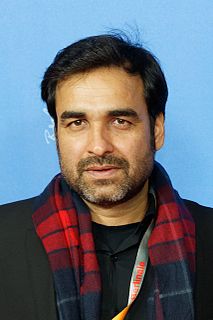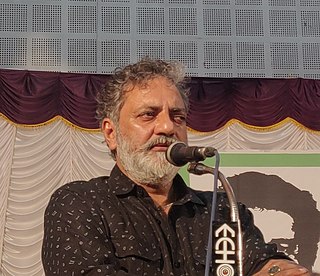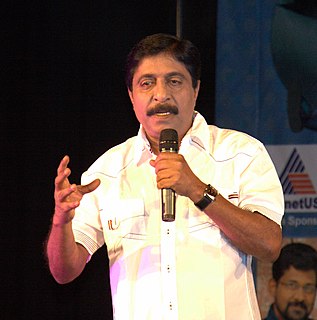A Quote by Pankaj Tripathi
Cinema is not just a medium of entertainment. Yes, it should entertain, but cinema is made to convey a message, to say something.
Related Quotes
Some people feel that the purpose of cinema is entertainment - which in itself is a healthy enough goal, provided you define what constitutes entertainment. But I come from a family where I grew up believing that cinema - art - should be used as an instrument for change and that's the kind of cinema I've largely done and been attracted to.
I hate political films that have one particular message that they're trying to convey. I think propaganda is very dangerous, and it's very easy for anything to slip into it. I also think that propaganda is something that defies the identity of cinema. I hate propaganda in cinema, even if it was promoting the political stance that I myself am allied with. I always say that the responsibility of a film is first and foremost: To be a film. It's not a manifesto, it's not an op-ed.
I'm very pessimistic about adaptations from one medium to another. I've got a very kind of primitive, Puritan view of it. I tend to think that if something was derived for one medium, then there's no real immediate reason to think that it's necessarily going to be as good or better if adapted into another one. There have been very good stage plays that have made some very good films. But there are not so many differences between the theater and the cinema as there are between the cinema and, say, reading a book or reading a comic.
I think what I loved in cinema - and what I mean by cinema is not just films, but proper, classical cinema - are the extraordinary moments that can occur on screen. At the same time, I do feel that cinema and theater feed each other. I feel like you can do close-up on stage and you can do something very bold and highly characterized - and, dare I say, theatrical - on camera. I think the cameras and the viewpoints shift depending on the intensity and integrity of your intention and focus on that.
Why do people go to the cinema? What takes them into a darkened room where, for two hours, they watch the play of shadows on a sheet? The search for entertainment? The need for a kind of drug? ..I think that what a person normally goes to the cinema for is time: for time lost or spent or not yet had. He goes there for living experience; for cinema, like no other art, widens, enhances and concentrates a person’s experience-and not only enhances it but makes it longer, significantly longer. That is the power of cinema: ‘stars’, story-lines and entertainment have nothing to do with it.
There are large numbers of people in India below the poverty line, there are large numbers of people who lead a meager existence. They want to find a little escape from the hardships of life, and come and watch something colorful and exciting and musical. Indian cinema provides that. So yes, the content of our television and our cinema is escapist in nature because we are there to provide entertainment.


































